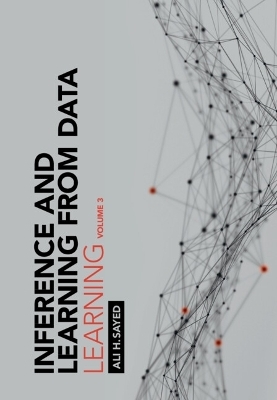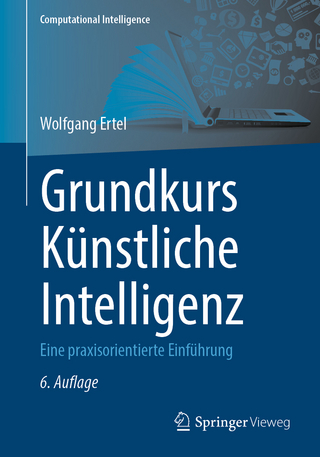
Inference and Learning from Data: Volume 3
Cambridge University Press (Verlag)
978-1-009-21828-3 (ISBN)
This extraordinary three-volume work, written in an engaging and rigorous style by a world authority in the field, provides an accessible, comprehensive introduction to the full spectrum of mathematical and statistical techniques underpinning contemporary methods in data-driven learning and inference. This final volume, Learning, builds on the foundational topics established in volume I to provide a thorough introduction to learning methods, addressing techniques such as least-squares methods, regularization, online learning, kernel methods, feedforward and recurrent neural networks, meta-learning, and adversarial attacks. A consistent structure and pedagogy is employed throughout this volume to reinforce student understanding, with over 350 end-of-chapter problems (including complete solutions for instructors), 280 figures, 100 solved examples, datasets and downloadable Matlab code. Supported by sister volumes Foundations and Inference, and unique in its scale and depth, this textbook sequence is ideal for early-career researchers and graduate students across many courses in signal processing, machine learning, data and inference.
Ali H. Sayed is Professor and Dean of Engineering at École Polytechnique Fédérale de Lausanne (EPFL), Switzerland. He has also served as Distinguished Professor and Chairman of Electrical Engineering at the University of California, Los Angeles, USA, and as President of the IEEE Signal Processing Society. He is a member of the US National Academy of Engineering (NAE) and The World Academy of Sciences (TWAS), and a recipient of the 2022 IEEE Fourier Award and the 2020 IEEE Norbert Wiener Society Award. He is a Fellow of the IEEE.
Preface; Notation; 50. Least-squares problems; 51. Regularization; 52. Nearest-neighbor rule; 53. Self-organizing maps; 54. Decision trees; 55. Naive Bayes classifier; 56. Linear discriminant analysis; 57. Principal component analysis; 58. Dictionary learning; 59. Logistic regression; 60. Perceptron; 61. Support vector machines; 62. Bagging and boosting; 63. Kernel methods; 64. Generalization theory; 65. Feedforward neural networks; 66. Deep belief networks; 67. Convolutional networks; 68. Generative networks; 69. Recurrent networks; 70. Explainable learning; 71. Adversarial attacks; 72. Meta learning; Author index; Subject index.
| Erscheinungsdatum | 09.01.2023 |
|---|---|
| Zusatzinfo | Worked examples or Exercises |
| Verlagsort | Cambridge |
| Sprache | englisch |
| Maße | 180 x 255 mm |
| Gewicht | 1760 g |
| Themenwelt | Mathematik / Informatik ► Informatik ► Theorie / Studium |
| Technik ► Nachrichtentechnik | |
| ISBN-10 | 1-009-21828-X / 100921828X |
| ISBN-13 | 978-1-009-21828-3 / 9781009218283 |
| Zustand | Neuware |
| Informationen gemäß Produktsicherheitsverordnung (GPSR) | |
| Haben Sie eine Frage zum Produkt? |
aus dem Bereich


